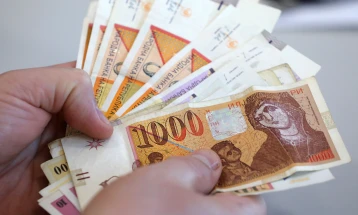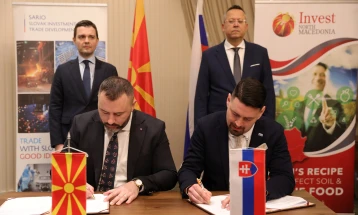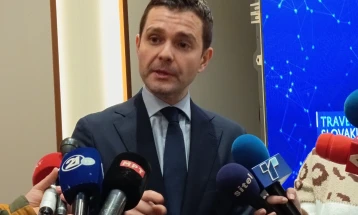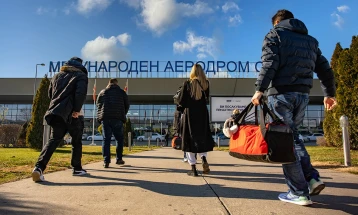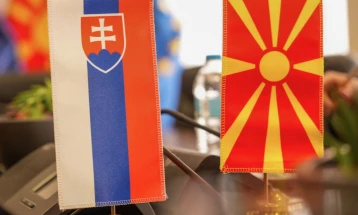Tajani: Balkans can no longer wait, Italy launches Corridor VIII initiative
- The Italian Deputy Prime Minister and Minister of Foreign Affairs, Antonio Tajani, in an opinion piece titled “The Balkans Can No Longer Wait” in Belgrade newspaper Blic wrote about restarting Italian activities in the region, including the Ministerial Meeting in Rome on April 3 with the foreign ministers of the Western Balkan countries, Sweden as chair of the EU Council, and the Commissioner for Neighbourhood and Enlargement, MIA’s Belgrade correspondent reports.
- Post By Angel Dimoski
- 13:48, 11 April, 2023
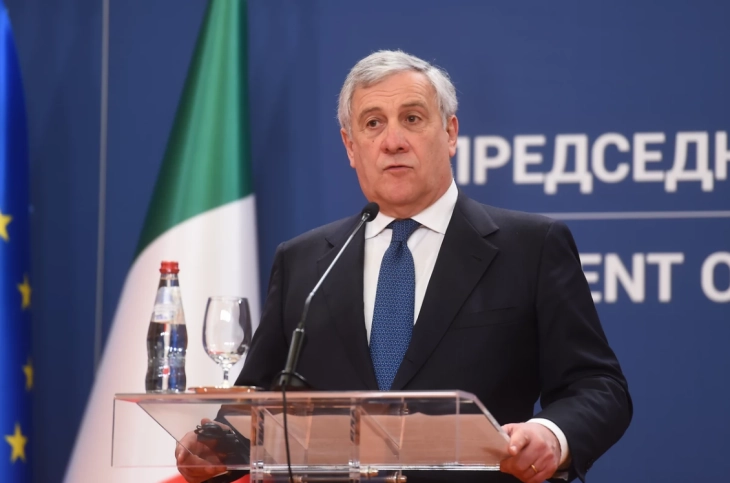
Belgrade, 11 April 2023 (MIA) – The Italian Deputy Prime Minister and Minister of Foreign Affairs, Antonio Tajani, in an opinion piece titled “The Balkans Can No Longer Wait” in Belgrade newspaper Blic wrote about restarting Italian activities in the region, including the Ministerial Meeting in Rome on April 3 with the foreign ministers of the Western Balkan countries, Sweden as chair of the EU Council, and the Commissioner for Neighbourhood and Enlargement, MIA’s Belgrade correspondent reports.
“Moving from the already excellent trade exchange, which reached EUR 17 billion in 2022, we will implement initiatives aimed at increasing the presence of our companies in the Balkans. We will fulfill this goal by using the opportunities provided by the development of European infrastructure, so, for example, in the coming months we will organize an initiative dedicated to the so-called Corridor VIII, a road and rail junction connecting Italy with Albania, North Macedonia and Bulgarian, a strategic axis connecting the Adriatic with the Black Sea,” wrote Tajani.
Tajani noted that they are “carefully tracking the strong demand for Europe and Italy in these countries, their aspiration to be a part of the European project and the need for joint work on integration within the EU mechanisms and institutional life in the early stages of the negotiations process, especially in key areas such as energy and digital transition, infrastructure, education, and research”.
“Some of my colleagues said: we want to help in laying the stages of this path, instead of just following them. I support this approach, which must involve all six countries in the creation of the next stages of the integration process,” said Tajani.
What the Western Balkan countries want is not a reduction in the number of reforms they need to adopt in order to join the EU, but rather, wrote Tajani, they seek assurances about the process, the deadlines and, above all, the final result.
“I could really feel their frustration with the integration process, which in recent years is becoming more and more unstable, thanks to the purely bureaucratic interpretation of the dynamics of negotiations by the EU. In this way, we overlook the exceptional transformative value of the integration process for the institutions and civil society in these countries. The European dream is at risk of becoming an illusion for them,” wrote the Italian Foreign Minister.
The meeting in Rome was used in order to provide specific answers immediately, said Tajani. Several sets of initiatives were identified for networks of experts to work on in the coming months, in order to develop projects in areas of mutual interests, starting from the protection and preservation of cultural heritage, answers to current challenges, climate change and technological innovations, and up to agriculture and agro-industry.
“I am an optimist about what can be achieved, because we saw everyone’s readiness to work together, to create synergy that can provide future, peace, and prosperity to the region by working to take down the barriers that limit the free movement of people, goods, services and capital, in order to create a common regional market as the first step to integration within the European single market. There are challenges which we share with the Balkans that require a joint response, such as energy transition, support for growth and employment, fight against uncontrolled migration,” said Tajani.
Italy intends to develop a multidimensional action for the Balkan region. On a political level it will continue to strengthen bilateral relations with all Western Balkan countries, while in Brussels it will act as the voice of their demands and their strong desire to join the EU. We will continue to contribute to the stability and the security of the region by maintaining the presence of our armed forces, wrote Tajani.
“The Western Balkans’ strong inclination towards Europe and Italy demands a response without delay. Because of this, we decided to continue the dialogue launched in Rome by holding a new meeting towards the end of the year in order to assess the progress of our cooperation. Italy wants to play a leading role and is ready to enter the playing field, because this issue concerns the future of our country and Europe. The Balkans can no longer wait,” wrote the Italian Foreign Minister in his article on the Western Balkan countries.
Photo: Blic

